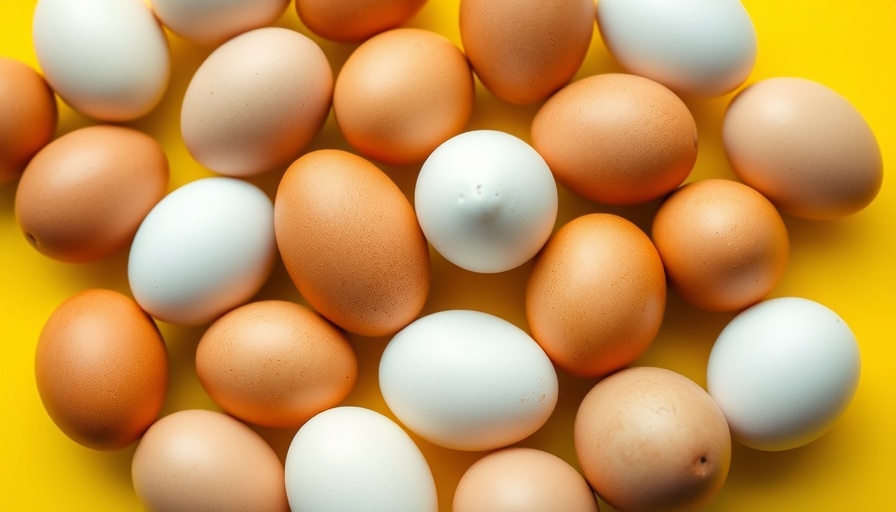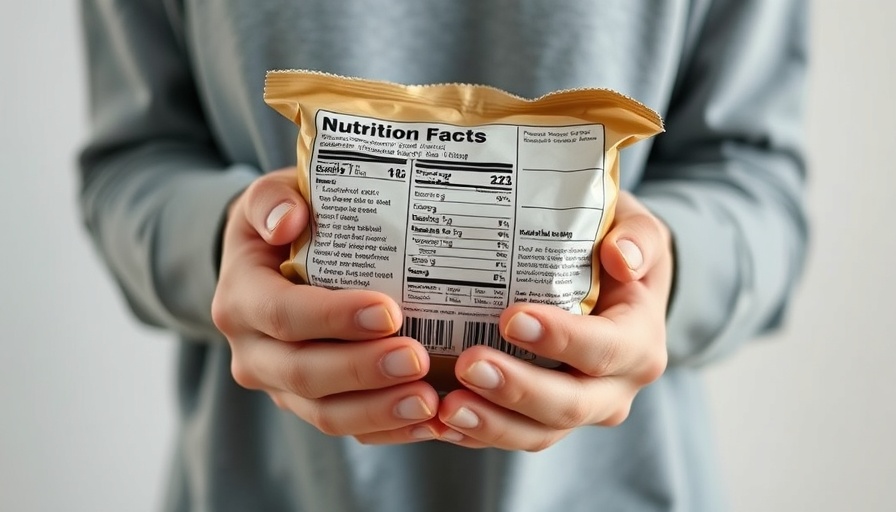
Unleashing the Power of Egg Alternatives for Healthy Cooking
With soaring egg prices and increasing dietary restrictions, it's no wonder many individuals are looking for alternatives to eggs in their cooking. Whether you’re vegan, have allergies, or simply want to cut down on costs, there are fantastic substitutes that can elevate your baking game while being kind to your wallet.
Why Consider Egg Substitutes?
Eggs are prized for their unique properties in baking. They act as an emulsifier, providing moisture and binding ingredients together, while also helping baked goods rise. However, there are several plant-based alternatives that can achieve similar results. Making the switch not only accommodates various dietary preferences but also contributes to a healthier diet. Choosing substitutes can help incorporate more fiber, healthy fats, and nutrients into your recipes without sacrificing taste or texture.
5 Top Natural Egg Substitutes
1. Flax Seeds: Your Nutritional Ally
Flax seeds are a popular egg substitute that brings numerous health benefits to the table. High in omega-3 fatty acids and rich in fiber, they are excellent for binding ingredients. To make a flax egg, simply combine one tablespoon of ground flax seeds with three tablespoons of water. Let it sit for about 10 minutes until it forms a gel-like consistency. Flax eggs work best in denser recipes like brownies or muffins.
2. Chia Seeds: Tiny Powerhouses
Chia seeds are not only a great source of omega-3s but also provide complete protein, making them a worthy competitor in the realm of egg substitutes. Similar to flax, combine one tablespoon of chia seeds with three tablespoons of water and allow it to sit until it thickens. Chia seeds add moisture and density to baked goods, making them suitable for heavier cakes and breads.
3. Applesauce: Natural Sweetness
For a touch of sweetness and moisture, applesauce makes a fantastic egg substitute in many recipes. Using 1/4 cup of unsweetened applesauce can replace one egg, and it works particularly well in sweet baked goods like cakes, pancakes, and muffins. It lowers the fat content while adding nutrients, making your treats a little healthier.
4. Yogurt: Creamy and Delicious
Plain yogurt, whether dairy or dairy-free, brings moisture and richness that is hard to beat. Use 1/4 cup to replace one egg in recipes like pancakes, cakes, or muffins. Yogurt not only acts as a binding agent but also enhances the texture, resulting in fluffy baked goods.
5. Silken Tofu: A Versatile Substitute
Silken tofu is a remarkable ingredient that can replace eggs in various recipes. Blend 1/4 cup of silken tofu until smooth and use it as an egg substitute, especially in dense baked goods like brownies and quick breads. Tofu is high in protein and low in carbohydrates, making it a solid choice for those following a plant-based diet.
Benefits of Going Egg-Free
Embracing egg substitutes can open up a world of health benefits. Not only do these alternatives accommodate dietary restrictions, but they also enhance the nutritional profile of your dishes. With more fiber, less cholesterol, and fewer saturated fats, these switches can alleviate symptoms of allergies, improve heart health, and promote overall wellness.
Incorporating Egg Substitutes in Your Meals
Making the transition to using egg substitutes requires a little experimentation but can pay off significantly. Start by replacing one egg in your favorite recipes and observe the results. This small change can lead to greater flexibility in your cooking and baking, allowing you to create delicious meals that cater to various dietary preferences.
Closing Thoughts: Your Health Journey
As you embark on your culinary adventures using these egg alternatives, remember that each substitute brings its own unique flavor and benefits. Take the time to explore and discover what works best for you. Your taste buds and wallet will thank you!
Ready to get started? Dive into these healthy substitutions, and reclaim your kitchen with creativity and nourishment in mind!
 Add Row
Add Row  Add
Add 




 Add Row
Add Row  Add
Add 

Write A Comment